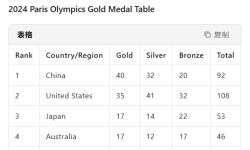WASHINGTON (Reuters) -Intel said on Monday that the U.S. government's 9.9% stake in the chipmaker could pose risks to its business, from potentially harming international sales to limiting its ability to secure future government grants.
The company laid out new risk factors in a securities filing after the government decided to convert $11 billion in government grants into an equity stake in Intel, the latest extraordinary intervention in corporate America by President Donald Trump.
Separately, Intel CEO Lip-Bu Tan said in a video posted on Monday by the Commerce Department that the company did not need the government funding.
"I don't need the grant," Tan said. "But I really look forward to having the U.S. government be my shareholder."
But the filing from Intel raised questions about the U.S. investment. Intel noted, for example, that it is uncertain if the deal may result in other government entities trying to convert existing grants into equity investments or if they might be unwilling to support future grants.
Intel shares will be acquired with the $5.7 billion in unpaid grants from the 2022 CHIPS and Science semiconductor subsidy law and $3.2 billion awarded to Intel for the Secure Enclave program last year under Trump's predecessor, Democratic President Joe Biden.
"To the maximum extent permissible under applicable law," Intel's obligations under the CHIPS Act will be considered discharged, barring the Secure Enclave program, according to the filing.
Intel's non-U.S. business may also be impacted by the U.S. government being a significant stockholder as this could subject the company to additional regulations or restrictions such as foreign subsidy laws in other countries, the filing said.
Sales outside the United States accounted for 76% of its revenue last year while revenue from China contributed 29% to total revenue.
Trump's deal with Intel came after Tan had a meeting with the president, who had demanded Tan's resignation over his ties to Chinese firms.
The company also said the shares to be issued to the U.S. government at a discount to the current market price are dilutive to existing stockholders.
The government is purchasing Intel shares at a $4 discount to Intel's closing stock price of $24.80 on Friday. Intel shares rose 2% in early trading on Monday to $25.25.
The government's substantial additional powers over laws and regulations impacting Intel may limit the company's ability to pursue transactions that benefit shareholders, the filing said.

